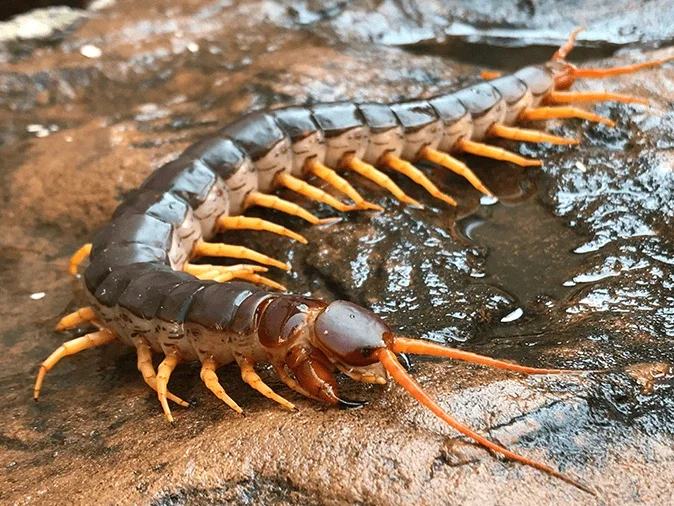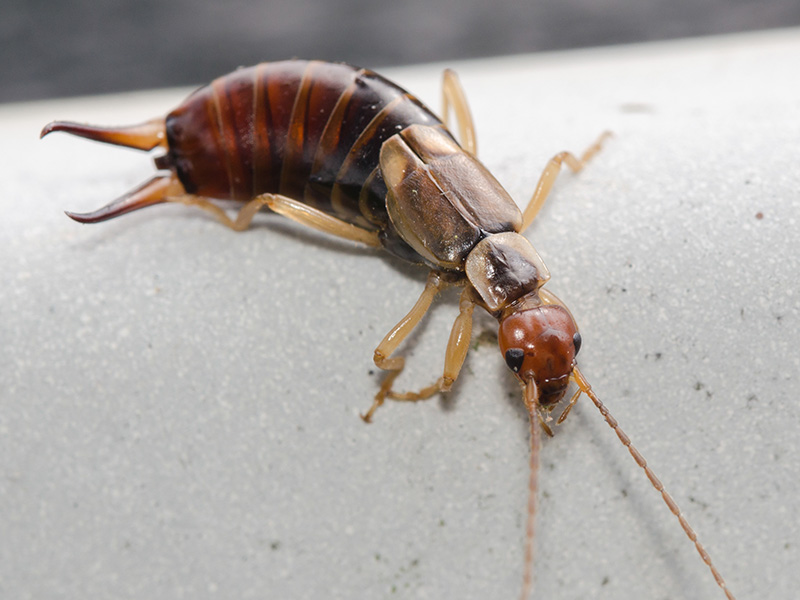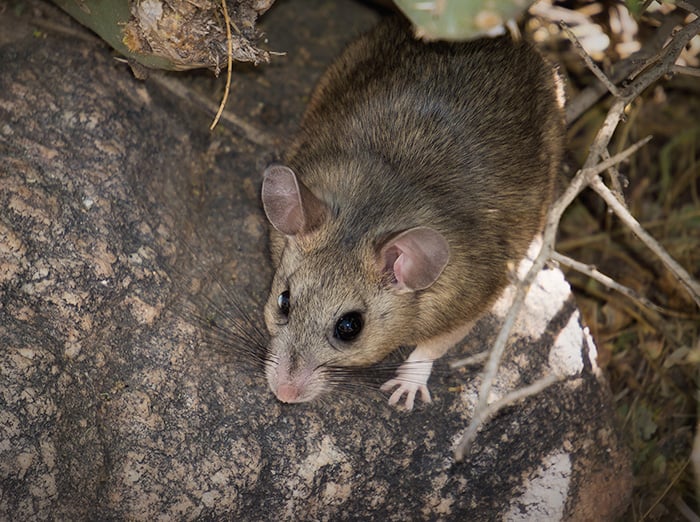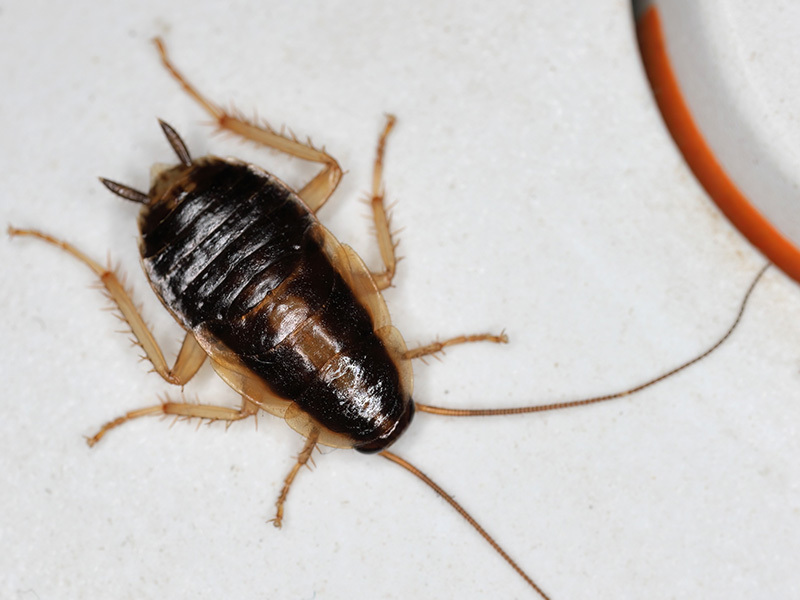
What Do Giant Centipedes Look Like?
Giant centipedes are orange-bodied insects that have yellowish legs, black or dark blue heads, each are equipped with a pair of modified legs on the last segment mimic their antennae found on their heads. They typically grow up to 8 inches in length.
When are giant centipedes most active?
Life Cycle of Giant Centipedes
Gradual metamorphosis
Giant centipedes lay their eggs in cavities. The young, colorless immatures hatch with the same amount of legs as the adult. They complete four instars after the immature stage before becoming adult form.
Habits of Giant Centipedes
- Diet: Small insects, larvae, and spiders
- Activity: Nocturnal
- Preferred Climate: Damp, temperate environments
- Defense: Speed and venom from poison claws paralyze prey.
- Cautions: Venomous centipedes in our area. Their bite is painful, can also pinch with their last pair of legs.
- Home Invasion: Mainly found outdoors hiding under rocks and debris, but will occasionally enter a structure. Possible nest locations are near areas pipes may be leaking or moisture is collected.
Are Giant Centipedes Dangerous?
Giant centipedes in our area are venomous and the pain their bites produce can last a few hours.
Where Do Giant Centipedes Nest?
Inside Arizona homes and businesses, giant centipedes often nest near pipes and areas where there's a leak or moisture builds up. Outside, they hide under rocks and debris.
Helpful Hints for Giant Centipedes
In order to discourage giant centipede activity in or around your home, our AZ pest control company recommends the following prevention tips:
- Eliminate moisture in or near the house or structure
- Seal up all potential entry points
- Remove all possible food sources
- Sign up for year-round pest control services to get rid of giant centipedes and other pests that infest homes in our state
An Interesting Fact About Giant Centipedes
In South America, giant centipedes can grow over one foot in length.
How Do You Get Rid of Giant Centipedes?
If you’ve found centipedes, millipedes, earwigs, or other nuisance house-infesting pests, contact Northwest Exterminating today! Offering home pest control services in Phoenix and Tucson, you can count on our team of experts to eradicate pest activity!

Testimonials
Request Your FREE Estimate
Have questions or need help getting rid of giant centipedes or other pests? Simply complete the form below or give us a call!



